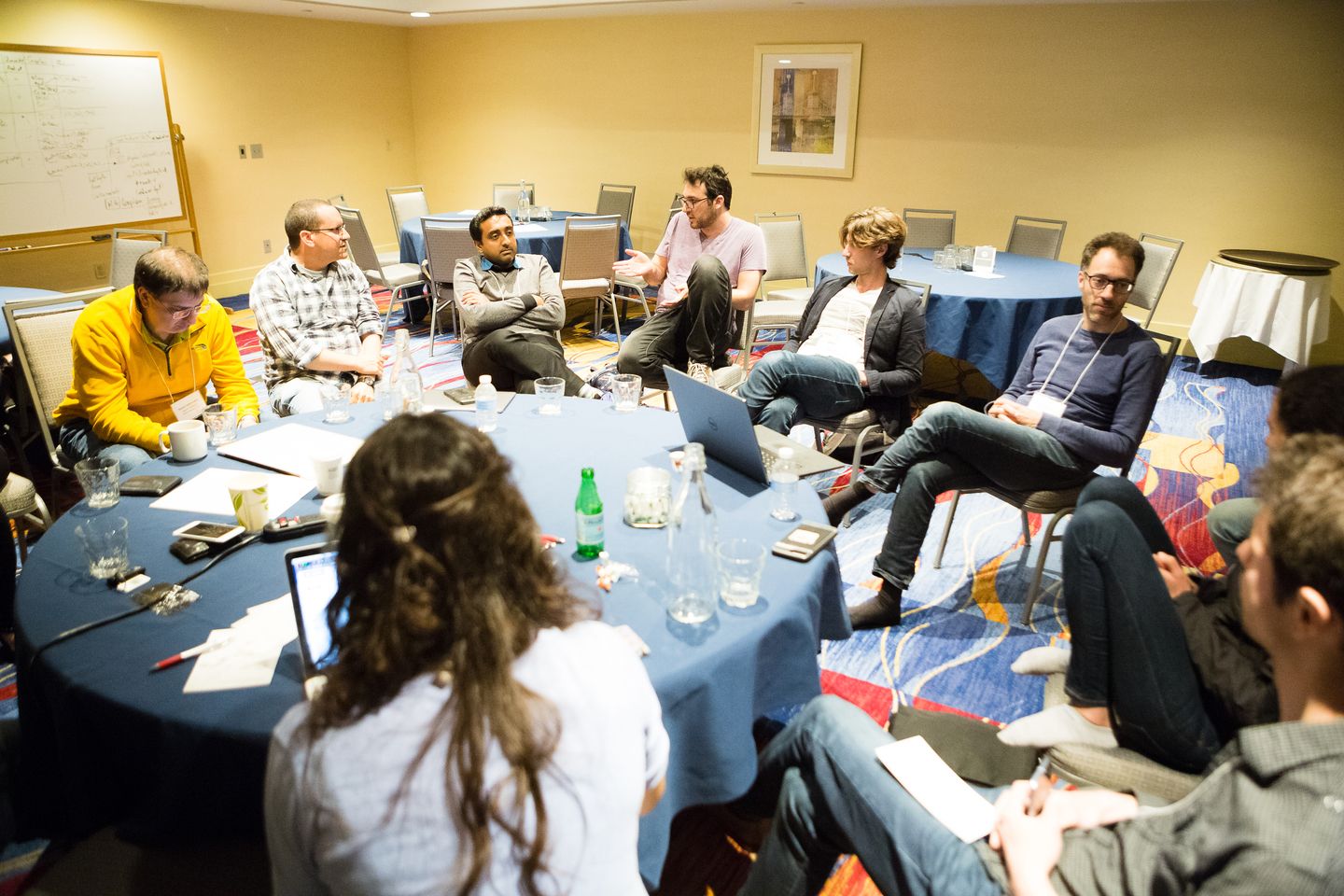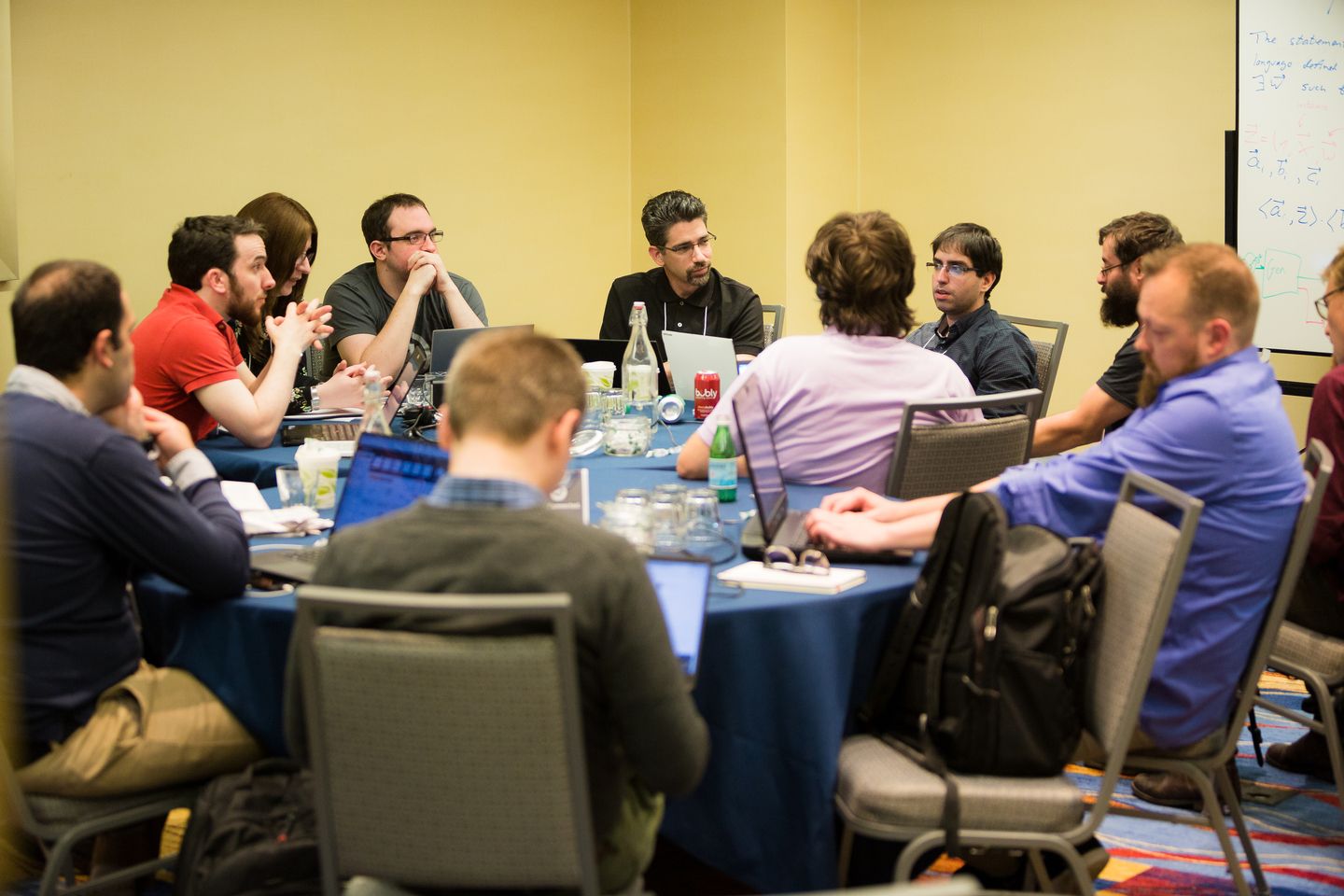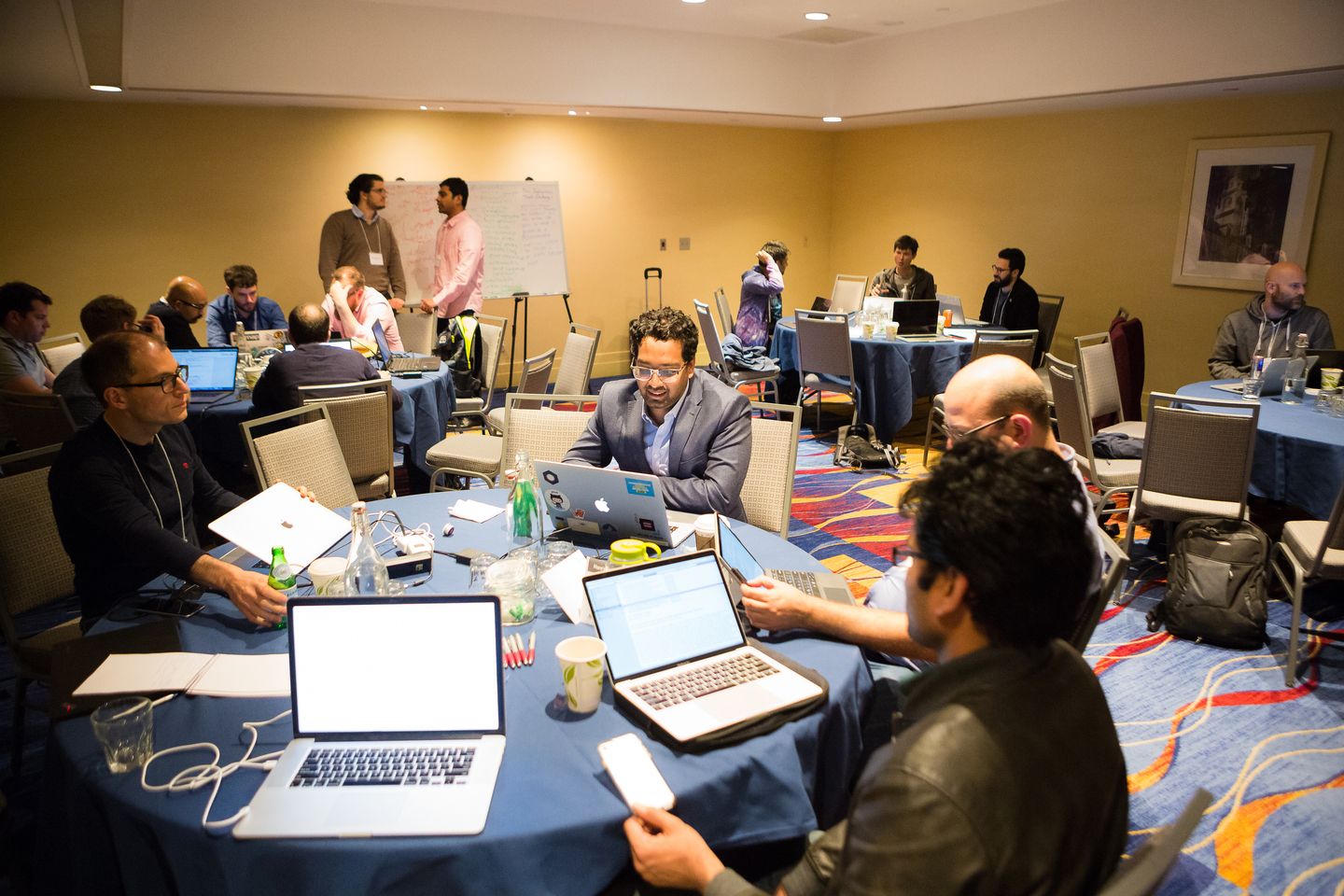Call for Community Standards Proposals



Submit your Community Standard proposal by sending us a PDF to contact@zkproof.org
Community Standards
We are now accepting proposals for Community Standards on topics related to the security, implementation and applications of zero-knowledge proofs. Community Standards serve as guidelines agreed upon by the community, that promote correct usage and interoperability of zero-knowledge proofs. (Further work, to be defined in collaboration with standard bodies, will be required to gain official status as a standard.)
Submission Requirements
Submissions must be prepared in LaTeX in 11-point font; there is no page limit. We encourage submission of every proposal, even if not finalized, because even discussing in-progress proposals is valuable to the community. To submit your proposal send an email with the PDF document at contact@zkproof.org with every author in CC.
Submissions must have the following structure:
- Title: proposal title, author names, and affiliations.
- Scope: a section specifying the scope of the standard, highlighting what is being standardized and what is not.
- Motivation: a section describing at least one concrete application motivating the proposed standard, including an explanation of why the community will benefit from such a standard.
- Background: a section introducing the problem, including definitions, references to previous work and other background details.
And should address the following points:
- Terminology: for consistency across documents, adopt throughout the proposal, terminology and definitions used in the ZKProof proceedings, with pointers to the relevant sections.
- Challenges: for motivating the discussions, highlight the main challenges in creating such a standard, as well as any open or unresolved questions.
- Security: if relevant, provide a proof of security in the description.
- Implementation: if relevant, submit an open source prototype implementation (by including a reference to the repository with the code).
- Intellectual Property: we aim to ensure that proposals can be freely implemented. Thus, proposals should disclose the existence of any known patents (awarded or pending) which may restrict free implementation. This may affect the decision process, and a detailed policy is being developed.
Initial Timeline
Each community standard proposal will be reviewed by the Proposals Committee (PC) and, if deemed appropriate, will be subsequently discussed in the second workshop. After the workshop, a second draft that includes the suggestions and comments from the discussions must be submitted. Authors of accepted proposals must attend the workshop and must submit each draft in a timely manner, according to the timeline below. After the initial submission, failure to submit the further drafts may result in a rejection of the proposal. Alternatively the Steering Committee (SC) may assign others to continue leading the proposal.
March 1st, 2019, 23:59 (UTC): submission of the first draft of proposals are due March 20th, 2019: decisions by the PC are communicated to the authors April 10th, 2019: community discussions start at the workshop, moderated by the PC May 15th, 2019, 23:59 (UTC): submission of the second draft of proposals are due
Online Discussions
After the workshop, shepherds will be assigned to each working draft in order to moderate online discussions that will take place in an open forum (to be determined). The shepherds will attempt to reach consensus by the community on different topics and will publish a “Last Call” and due date for final comments and suggestions. Once these final changes have been made, the shepherds will review the final drafts and submit them to the SC for approval as a Community Standard.
Topics
Proposals on any topic related to zero zero-knowledge proofs are welcome, including:
- Terminology
- Motivation: the first thing to be standardized should be terminology, language and definitions. The field of zero knowledge is packed with terms and concepts that require careful definitions, which vary across the literature (see Security and Implementation tracks).
- Proposal example: provide a unified glossary encompassing all (implicit and explicit) terminology in the proceeding documents.
- Benchmarks
- Motivation: benchmarks are important for efficiency trade-offs. Today, there is no clear preferable construction since there are many trade-offs to consider.
- Proposal example: a specific implementation of a functionality (e.g., an agreed-upon arithmetic circuit for SHA256) or by the functionality itself (leaving freedom to choose the “most friendly” realization thereof).
- Interoperability
- Motivation: many constructions have the ability to use Rank-1 Constraint Systems and it would be useful to have APIs and file formats standardized for interoperability. There is currently a mailing list for discussing interoperability of zkp systems and implementations.
- Proposal example: here is an outline of topics that derived from the first workshop, and here is an initial proposal that was written.
- Constructions
- Motivation: there are many constructions out there, yet some are seeing a lot of adoption and we want to encourage proper usage make sure that people are using them correctly. Having a standardized specification and test vectors will be beneficial to the industry.
- Proposal example: see zkp.science for examples of scheme constructions and respective implementations.
- Domain specific languages
- Motivation: one of the biggest bottlenecks for using zero knowledge systems is the difficulty in writing secure and robust constraint systems, for which a DSL would allow more adoption and usability.
- Proposal example: see zkp.science for examples of DSL's for constraint system generation.
- Protocols and Applications
- Motivation: ensuring that a zkp based system uses a secure protocol can be tricky, especially since each one can have different privacy requirements or caveats that are not easy to detect.
- Proposal example: as is outlined in the Applications Track proceeding, some (if not most) use-cases share basic requirements (confidentiality, anonymity, etc...). Once can use Pedersen Hashes or SHA256 for committing to data and use RSA accumulators or Merkle TRees for set membership.